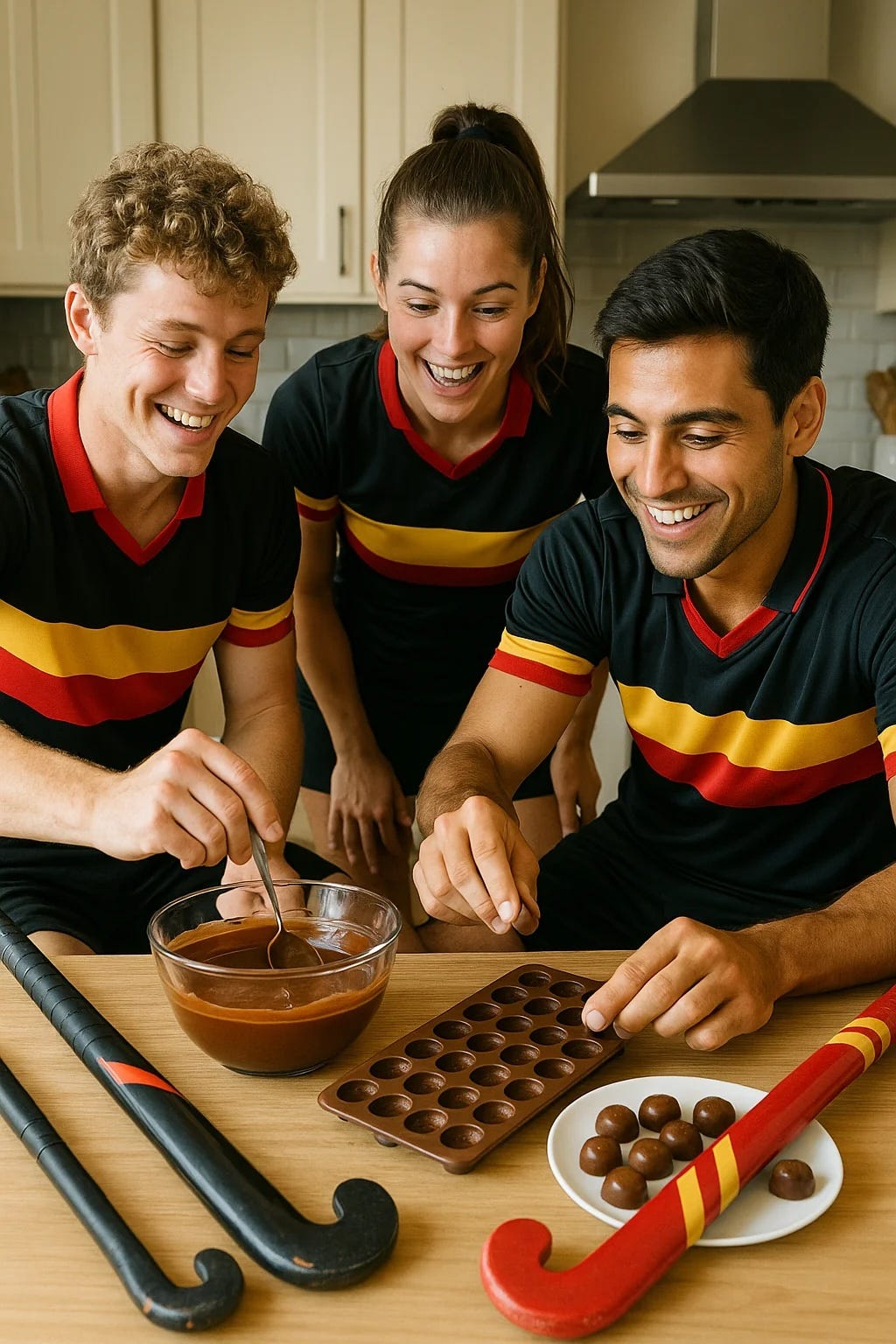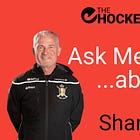Like Crafting The Perfect Chocolate
The Secret Recipe of Belgium — Or Why Building a Field Hockey Champion Is Like Crafting the Perfect Chocolate
If Belgian hockey’s meteoric rise over the last decade reminds you of something, it should probably be—fittingly—the making of exquisite Belgian chocolate. The outside world sees only the gold foil and the satisfied faces at the podium, just as tourists marvel at the velvet-smooth pralines in Brussels shop windows. But those in the kitchen know: each chocolate’s richness relies on a meticulous mix of ingredients, unglamorous labor, patience, open experimentation, and a philosophy handed down—and reinvented—with every new batch.
Let’s run with this analogy. Imagine a team of dedicated chocolatiers, each with a heritage and idea about what makes for the ultimate treat. Someone from Ghent brings a family tradition, another from Antwerp introduces new spices, and on a another day south of Brussels, a newcomer questions if the mix could go darker, bolder. Now picture the recipe itself constantly expanding: a pinch of shared values, a dash of performance science, bold innovations, and, most importantly, the humility to put the team first—no matter who invented the original praline.
For a long time, Belgian field hockey was the forgotten shelf in the sporting pantry—solid, reliable, respected by connoisseurs, but not the showstopper. Change began when a group of curious coaches and athletes, many trained and seasoned abroad, came together and asked a few uncommonly brave questions: What defines us? Why not us at the very top? What are we prepared to question, discard, keep and celebrate? How can “good” become “great,” not for a single season but for generations to come?
And so, the Red Lions rewrote their future—and, with it, the story of field hockey. In doing so, they created not only champions but a philosophy that continues to be studied, adapted, feared, and—above all—admired. Their success is not the result of a single magic formula, but a living, breathing culture: a coaching and organisational recipe built on connection, values, innovation, relentless basics, tough self-reflection, brave decisions, hard work, openness to diversity, and, yes, occasionally a sprinkle of luck.
In this bit of writing, aimed at those who spend their weekends muddy and their whiteboards crowded—experienced hockey coaches from all corners of the globe—we’ll walk deeper into the Belgian kitchen. You’ll meet the chefs: Shane McLeod and Adam Commens, who shared some of their recipes with us.
Sources / Ingredients were:
Here’s what you can expect from the upcoming chapters below:
We’ll challenge the notion of “genius coach” or “genius player”and instead explore the Belgian insistence on collective ownership, cross-generational connection and why even the greatest talents are asked one central question: What do you bring to the table?
We’ll dissect how a values-based culture—painstakingly built, embedded and sustained—seeps into every session, affects selection, leadership, and even how defeats are processed.
We’ll dig into the technical heart of the Belgian model: why basics and ‘quality’ are considered non-negotiable, and why even the best are never satisfied.
We'll explore the Red Lions’ openness to diversity and innovation, how hybrid backgrounds and a spirit of questioning turbocharged the team both tactically and culturally.
We’ll see how their approach to psychological safety and feedback underpins their ability to perform under Olympic pressure—a lesson as relevant on a cold Saturday for your U14 girls as on the Tokyo stage.
We’ll look at how adaptation and reflection became Belgian mantras: how to win, how to change, how to lose, and how to keep moving forward as everyone starts hunting you.
Finally, we’ll extract three actionable takeaways for your own team, whatever your context or ambitions.
Unlike chocolate, there’s no expiry date to these lessons; they grow richer with sharing.










